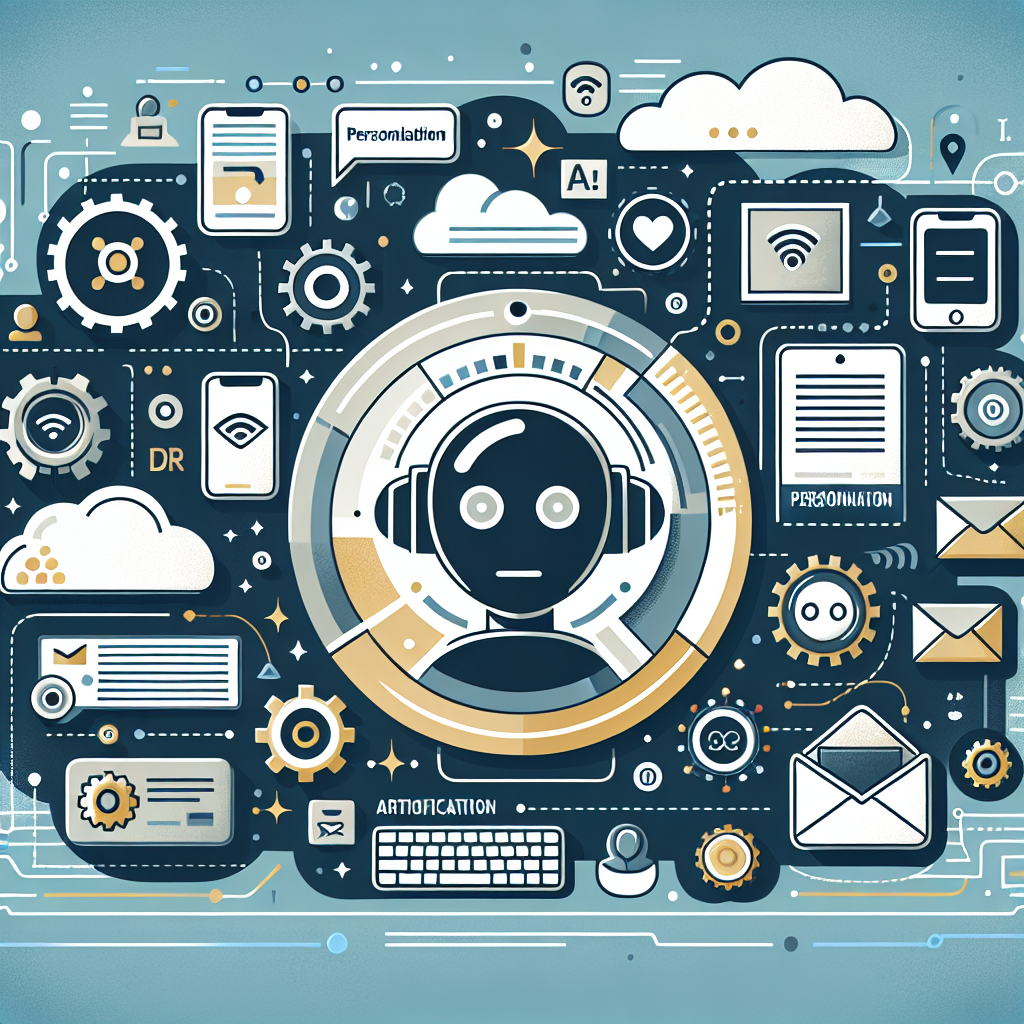In today’s digital age, email marketing remains a powerful tool for businesses to connect with their customers. With the rise of artificial intelligence (AI), email marketing has evolved to become more personalized and targeted than ever before. AI-powered personalization in email marketing is revolutionizing the way businesses engage with their audience, driving higher open rates, click-through rates, and ultimately, conversions.
What is AI-powered personalization in email marketing?
AI-powered personalization in email marketing involves using machine learning algorithms to analyze data and understand customer behavior. By leveraging this technology, businesses can create highly targeted and personalized email campaigns that resonate with their audience on a deeper level.
AI-powered personalization allows businesses to send the right message, to the right person, at the right time. Instead of sending generic emails to their entire email list, businesses can use AI to segment their audience based on factors such as demographics, behavior, and preferences. This enables businesses to tailor their messaging to each individual recipient, increasing the likelihood of engagement and conversion.
How does AI-powered personalization work?
AI-powered personalization in email marketing works by analyzing large amounts of data to identify patterns and trends in customer behavior. This data can include information such as past purchases, website visits, email interactions, and demographic information. By analyzing this data, AI algorithms can predict what types of content will resonate with each individual recipient and recommend the most relevant products or services to them.
AI-powered personalization can also help businesses optimize their email campaigns by testing different subject lines, content, and call-to-actions to see what resonates best with their audience. By continuously analyzing and optimizing campaigns, businesses can improve their email marketing performance over time and drive better results.
What are the benefits of AI-powered personalization in email marketing?
There are several key benefits of AI-powered personalization in email marketing, including:
1. Increased engagement: By delivering personalized content to each recipient, businesses can increase engagement with their emails. Personalized emails are more likely to be opened, read, and acted upon, leading to higher click-through rates and conversions.
2. Improved targeting: AI-powered personalization enables businesses to segment their audience based on factors such as behavior, preferences, and demographics. This allows businesses to deliver targeted messages to specific segments of their audience, increasing the relevance and effectiveness of their email campaigns.
3. Higher conversion rates: By delivering personalized content to each recipient at the right time, businesses can drive higher conversion rates from their email campaigns. Personalized emails are more likely to lead to a purchase or other desired action, resulting in a higher return on investment.
4. Enhanced customer experience: AI-powered personalization allows businesses to create a more personalized and relevant experience for their customers. By delivering content that is tailored to each individual recipient, businesses can build stronger relationships with their audience and increase customer loyalty.
5. Time and cost savings: AI-powered personalization automates the process of analyzing data and creating personalized email campaigns, saving businesses time and resources. By leveraging AI technology, businesses can create highly targeted and effective email campaigns without the need for manual intervention.
FAQs about AI-powered personalization in email marketing:
Q: How can businesses get started with AI-powered personalization in email marketing?
A: To get started with AI-powered personalization in email marketing, businesses should first invest in a marketing automation platform that offers AI capabilities. These platforms can help businesses analyze data, segment their audience, and create personalized email campaigns. Businesses can also work with AI-powered personalization providers to implement and optimize their email marketing strategy.
Q: What types of data can businesses use for AI-powered personalization in email marketing?
A: Businesses can use a variety of data sources for AI-powered personalization in email marketing, including past purchases, website visits, email interactions, and demographic information. By analyzing this data, businesses can gain insights into customer behavior and preferences, enabling them to create more targeted and relevant email campaigns.
Q: How can businesses measure the success of AI-powered personalization in email marketing?
A: Businesses can measure the success of AI-powered personalization in email marketing by tracking key performance indicators such as open rates, click-through rates, conversion rates, and revenue generated from email campaigns. By analyzing these metrics, businesses can determine the impact of AI-powered personalization on their email marketing performance and make data-driven decisions to optimize their campaigns.
Q: Are there any challenges associated with AI-powered personalization in email marketing?
A: While AI-powered personalization offers many benefits, there are also challenges associated with implementing this technology in email marketing. These challenges can include data privacy concerns, the need for accurate and up-to-date data, and the potential for AI algorithms to make mistakes. Businesses should be mindful of these challenges and work to address them proactively to ensure the success of their AI-powered personalization efforts.
In conclusion, AI-powered personalization is transforming email marketing by enabling businesses to create highly targeted and personalized campaigns that resonate with their audience. By leveraging AI technology, businesses can deliver the right message, to the right person, at the right time, driving higher engagement, conversions, and customer loyalty. As AI continues to advance, we can expect to see even more innovative and effective personalization strategies in email marketing in the future.

